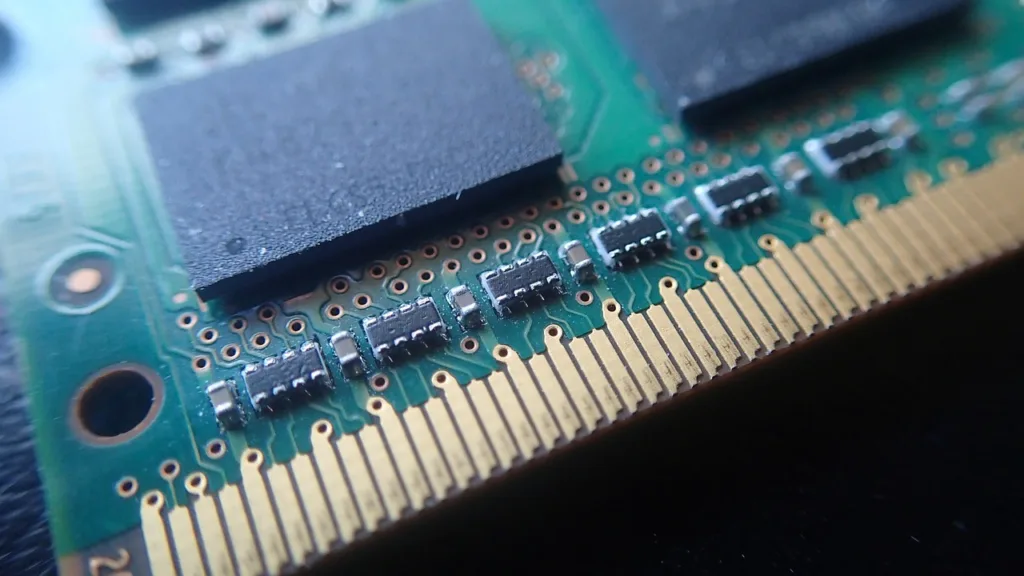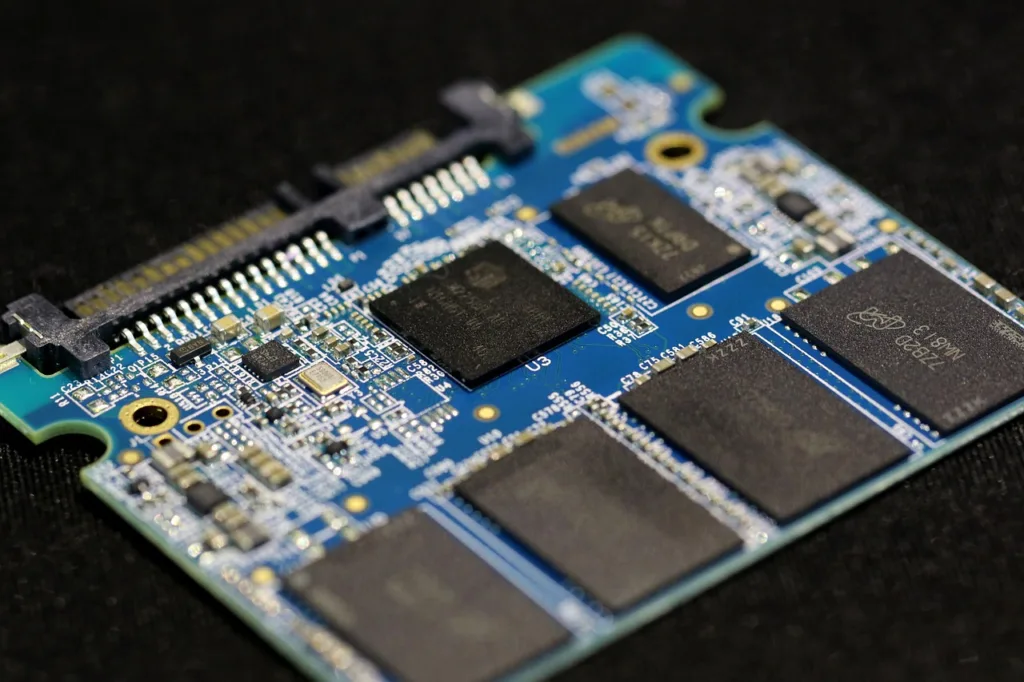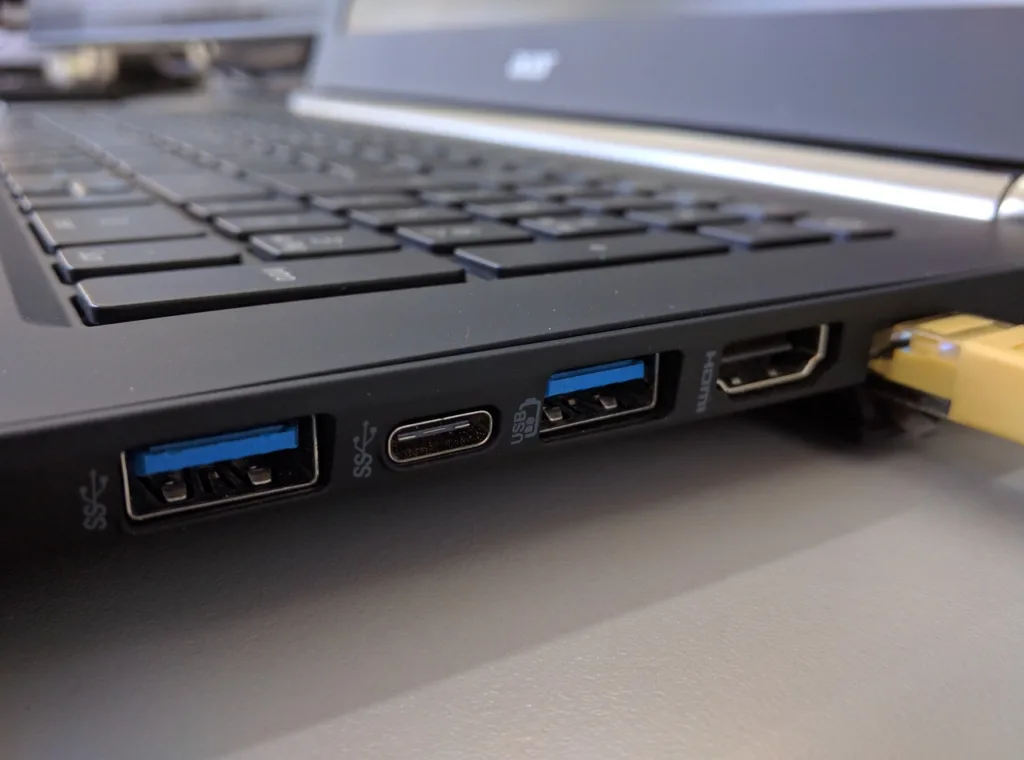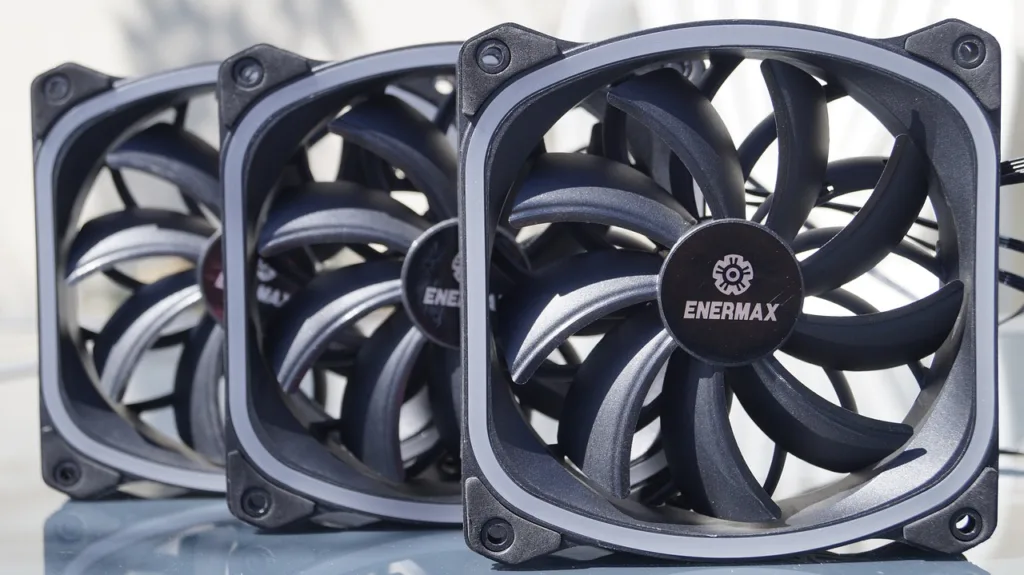This website may contain affiliate links, which means I may receive a commission if you click on a link and make a purchase. While clicking on these links won't cost you any extra money, they will help me keep this site up and running. Your support is appreciated!

Welcome to the world of high-performance laptops, where computing power meets sleek design and top-of-the-line technology. Whether you’re a professional looking for a portable powerhouse for your work or a gaming enthusiast in search of the ultimate gaming rig, choosing the right laptop can be a daunting task. With so many options on the market, it’s important to know what to look for in a high-performance laptop that will meet your needs and exceed your expectations. From processing power to display quality and everything in between, we’ll be diving into the essential factors to consider when selecting the perfect high-performance laptop for you. So grab your favorite beverage, settle into a comfortable seat, and let’s explore the world of high-performance laptops together.
Table of Contents
- Prioritize Processor Power
- Consider the Core Count
- Understanding Graphics Prowess
- Balancing Battery Life with Performance
- The Sweet Spot for RAM
- Internal Storage Solutions
- Essential Ports and Connectivity
- Assessing Build Quality and Durability
- Check for Cooling Efficiency
- Looking at the Long-term Support and Warranty
- Questions & Answers About How to Choose a High-Performance Laptop
- Key Takeaways
Prioritize Processor Power
When it comes to choosing a high-performance laptop, one of the most important factors to consider is the processor power. The processor, also known as the CPU, is the brain of your computer, responsible for carrying out tasks and running applications. A speedy processor can greatly enhance your overall computing experience, making your laptop more efficient and responsive.
Here’s how to when selecting the perfect high-performance laptop for your needs.
Consider the Processor Type
There are various types of processors available on the market, each with its own strengths and weaknesses. Intel and AMD are the two major players in the processor game, and each offers a range of options tailored to different needs. Do your research to determine which processor type best suits your requirements, whether it be for gaming, content creation, or everyday use.
Look at the Processor Speed
Processor speed, measured in gigahertz (GHz), indicates how quickly the processor can perform tasks. The higher the speed, the faster your laptop will be able to handle demanding applications and multitasking. Keep in mind that processor speed isn’t the only factor in determining overall performance, but it’s still an essential consideration when choosing a high-performance laptop.
Think About the Number of Cores
Modern processors come with multiple cores, allowing them to execute multiple tasks simultaneously. Dual-core, quad-core, and even six-core and eight-core processors are common options. More cores generally mean better performance, particularly for multitasking and running resource-intensive programs. Consider the type of tasks you’ll be performing on your laptop to determine the optimal number of cores for your needs.
Find the Right Balance
Ultimately, the ideal high-performance laptop will strike the right balance between processor power, battery life, and other features such as graphics capabilities and storage. Finding the sweet spot may require some trade-offs, but it’s essential to prioritize your specific needs and preferences to ensure that you’re getting the most out of your investment in a high-performance laptop.
| Processor Type | Intel or AMD |
| Processor Speed | Measured in gigahertz (GHz) |
| Number of Cores | Dual-core, quad-core, etc. |
Consider the Core Count
When choosing a high-performance laptop, one of the most crucial factors to consider is the core count of the processor. This determines how many tasks your laptop can handle at once and directly impacts its overall speed and responsiveness.
Here’s why you should when choosing a high-performance laptop:
What is a core count?
In simple terms, the core count refers to the number of processing units within the CPU of your laptop. Each core is capable of handling a separate task, so the more cores your processor has, the more tasks it can juggle simultaneously.
Benefits of a higher core count
- Improved multitasking capabilities
- Faster rendering and processing of large files
- Enhanced performance in resource-intensive tasks such as gaming or video editing
Drawbacks of a lower core count
- Limited multitasking ability
- Slower performance in demanding applications
- Reduced overall speed and responsiveness
When it comes to high-performance laptops, a higher core count is generally preferable. Look for laptops with processors that have at least four cores for a significant boost in performance. Dual-core processors may suffice for basic tasks, but for more demanding use cases, such as gaming or content creation, opt for a quad-core or higher processor for optimal performance.
In the market for a high-performance laptop with a robust core count? Consider checking out the latest models from industry leaders such as Dell, HP, and Apple for a wide range of options to suit your specific needs.
Understanding Graphics Prowess
When looking for a high-performance laptop, it’s important to consider its graphics prowess. Understanding how to choose a laptop with the right graphics capabilities can make a huge difference in its overall performance, especially for tasks that are graphics-intensive like gaming, design work, or video editing.
One important factor to consider is the graphics processor, or GPU. Look for a laptop with a dedicated GPU rather than integrated graphics, as dedicated GPUs are designed specifically for handling graphics tasks and provide much better performance. NVIDIA and AMD are two of the most popular GPU manufacturers, and their GPUs are commonly found in high-performance laptops.
Another aspect to consider is the amount of video memory the GPU has. More video memory allows the GPU to handle larger and more complex graphics tasks, so look for a laptop with at least 4GB of video memory for good performance.
Lastly, consider the display of the laptop. A high-resolution display with a high refresh rate can further enhance the graphics prowess of the laptop, providing smooth and detailed visuals. Look for displays with at least Full HD resolution and a refresh rate of 120Hz or higher for an optimal experience.
Balancing Battery Life with Performance

When choosing a high-performance laptop, it’s important to find the perfect balance between battery life and performance. Nobody wants a laptop that dies within an hour, but at the same time, you don’t want to sacrifice power for a longer battery.
Here are some tips on how to choose a laptop that offers both exceptional performance and long battery life.
Consider the Processor
| Processor Type | Battery Life | Performance |
| Intel Core i5 | Good | Great |
| AMD Ryzen 7 | Excellent | Outstanding |
Look for a laptop with a processor that offers a good balance between battery life and performance. Intel Core i5 and AMD Ryzen 7 processors are great options that provide a good mix of power and efficiency.
Opt for Solid State Drive (SSD)
A laptop equipped with an SSD not only offers faster boot times and data transfer speeds, but it also consumes less power compared to a traditional hard drive. This means you can enjoy longer battery life without sacrificing performance.
Choose the Right Display
When it comes to the display, consider a laptop with an LED or OLED screen. These types of displays are not only energy-efficient but also provide crisp and vibrant visuals. Additionally, look for a laptop with a lower resolution display, as higher resolution screens consume more power.
Look for Optimized Graphics
For those who require a laptop for tasks such as gaming or graphic design, choosing a model with optimized graphics is key. Integrated graphics consume less power, while still providing decent performance for everyday tasks. However, if you require more power, consider a laptop with dedicated graphics, but keep in mind that it may drain the battery more quickly.
By carefully considering these factors, you can choose a high-performance laptop that offers a balance between battery life and performance, meeting your needs without compromise. Don’t forget to check out our recommended high-performance laptops for the best options in the market.
The Sweet Spot for RAM

When it comes to choosing a high-performance laptop, one of the most crucial factors to consider is the amount of RAM it has. The sweet spot for RAM in a high-performance laptop is typically between 8GB and 16GB. This range strikes the perfect balance between price and performance, ensuring that your laptop can handle demanding tasks without breaking the bank.
Why is RAM important?
RAM, or Random Access Memory, is essential for multitasking and running resource-intensive applications. The more RAM your laptop has, the more programs it can run simultaneously without slowing down. This is especially important for tasks like video editing, 3D rendering, and gaming, where large amounts of RAM are necessary for smooth performance.
Pros and Cons of Different RAM Sizes
- 8GB: Ideal for everyday tasks and light multitasking. It’s also more affordable, making it a good choice for budget-conscious users. However, it may struggle with more demanding applications.
- 16GB: Offers better multitasking capabilities and can handle more advanced applications with ease. While it’s more expensive than 8GB, it provides a noticeable performance boost.
Recommendation
For most users, 16GB of RAM is the sweet spot for a high-performance laptop. It provides the necessary headroom for multitasking and running demanding applications, without breaking the bank. We recommend laptops such as the Dell XPS 15 or the MacBook Pro 16, which offer excellent performance and value for their respective price points.
| Laptop Model | RAM |
|---|---|
| Dell XPS 15 | 16GB |
| MacBook Pro 16 | 16GB |
In summary, when choosing a high-performance laptop, it’s essential to find that suits your needs and budget. With the right amount of RAM, your laptop can handle anything you throw at it, whether it’s work, entertainment, or creative pursuits. Choose wisely, and you’ll have a powerful and reliable companion for years to come.
Internal Storage Solutions

When it comes to choosing a high-performance laptop, one of the most important factors to consider is the internal storage. With so many options available, it can be overwhelming to know which one is the best for your needs. Here are some factors to consider when choosing the right internal storage solution for your laptop:
Type of Storage: There are two main types of for laptops: Hard Disk Drives (HDD) and Solid State Drives (SSD). HDDs are more affordable and offer larger storage capacity, while SSDs are faster and more reliable.
Storage Capacity: The amount of storage you need will depend on how you plan to use your laptop. If you need to store large files such as videos and games, a larger storage capacity may be necessary. However, if you primarily use your laptop for web browsing and word processing, a smaller capacity may suffice.
Speed: The speed of the internal storage solution is crucial for high-performance laptops. SSDs are significantly faster than HDDs, which means faster boot times and quicker access to files and programs.
Brand and Reliability: When choosing an internal storage solution, it’s important to consider the brand and reliability of the product. Some reputable brands for include Samsung, Western Digital, and Crucial. It’s also important to read reviews and consider the warranty and customer support offered by the manufacturer.
When choosing an internal storage solution for your high-performance laptop, it’s important to consider the type of storage, storage capacity, speed, brand, and reliability. Ultimately, the best choice will depend on your specific needs and budget. With the right internal storage solution, you can maximize the performance and efficiency of your laptop for years to come.
Essential Ports and Connectivity

When it comes to choosing a high-performance laptop, one of the key factors to consider is the availability of options. These are the features that will determine how well your laptop can integrate with your other devices and peripherals. Here are some tips for picking a laptop that will meet all your needs.
USB Ports
Look for a laptop with a variety of USB ports, including both traditional USB-A ports and the newer USB-C ports. These will allow you to connect a wide range of peripherals, from external hard drives to smartphones and tablets. Having a mix of ports will ensure compatibility with all your devices.
HDMI and DisplayPort
If you plan on using your laptop for presentations or connecting it to an external monitor, make sure it has an HDMI port and/or a DisplayPort. These ports will allow you to easily connect your laptop to a larger display without the need for adapters.
Wireless Connectivity
In addition to physical ports, consider the wireless connectivity options on the laptop. Look for laptops with the latest WiFi standards, such as WiFi 6, for fast and reliable wireless internet connection. Bluetooth connectivity is also important for connecting wireless peripherals like mice and keyboards.
Expandability and Upgradability
Finally, consider how easy it is to expand and upgrade the laptop’s connectivity options. Some laptops may have easily accessible ports and slots for adding more storage or additional connectivity options. Look for laptops that offer this flexibility for future-proofing your device.
When choosing a high-performance laptop, having a variety of options is crucial for ensuring that your laptop can meet all your needs. From USB ports to wireless connectivity, these features will determine how well your laptop can integrate with your other devices and peripherals. Take the time to consider these factors to ensure you choose a laptop that will serve you well in the long run.
Assessing Build Quality and Durability
When choosing a high-performance laptop, it’s crucial to assess the build quality and durability to ensure that your investment will stand the test of time. Here are some key factors to consider:
1. Material
Look for laptops made with high-quality materials such as aluminum or magnesium alloy, which are durable and lightweight. Avoid laptops with flimsy plastic construction, as they are more prone to damage.
2. Hinge and Chassis
Check the hinge and chassis of the laptop to ensure that they are sturdy and well-built. A robust hinge will ensure that the screen stays in place, while a solid chassis will protect the internal components from damage.
3. Keyboard and Trackpad
Test the keyboard and trackpad for responsiveness and durability. Look for laptops with a comfortable, spill-resistant keyboard and a smooth, reliable trackpad for a better overall user experience.
4. Drop and Impact Testing
Consider laptops that have undergone drop and impact testing to ensure that they can withstand accidental bumps and falls. This will give you peace of mind knowing that your laptop is built to last.
| Pros | Cons |
| Durable and long-lasting | May be more expensive |
| Resistant to damage | Heavier than plastic laptops |
By carefully evaluating the build quality and durability of a high-performance laptop, you can ensure that you’re investing in a long-lasting and reliable device that will meet your needs for years to come.
Check for Cooling Efficiency

When choosing a high-performance laptop, it’s important to consider the cooling efficiency of the device. A laptop’s cooling system plays a crucial role in maintaining the overall performance and longevity of the device. Here are some key factors to consider when checking for cooling efficiency:
- Ventilation: Look for laptops with efficient ventilation systems that allow for proper airflow to dissipate heat.
- Heat sinks: High-quality heat sinks are essential for effectively transferring heat away from the internal components of the laptop.
- Fan quality: Opt for laptops with high-performance fans that are capable of keeping the device cool under heavy workloads.
Why Cooling Efficiency Matters
Poor cooling efficiency can lead to overheating, which can result in decreased performance, system crashes, and even hardware damage. A laptop with a reliable cooling system will be able to maintain high performance levels without compromising on stability and reliability.
Recommendation: ASUS ROG Zephyrus G14
The ASUS ROG Zephyrus G14 is a high-performance laptop that is known for its exceptional cooling efficiency. With an advanced thermal design, efficient ventilation, and high-quality cooling components, the Zephyrus G14 is able to deliver impressive performance without overheating. Additionally, it features a customizable cooling system that allows users to fine-tune the cooling performance according to their specific needs.
Looking at the Long-term Support and Warranty

When it comes to choosing a high-performance laptop, it’s important to consider the long-term support and warranty offered by the manufacturer. A laptop is an investment, and you want to make sure that it will continue to perform at its best for years to come.
One thing to look for is a manufacturer that offers a comprehensive warranty that covers both hardware and software issues. This will give you peace of mind knowing that if anything goes wrong with your laptop, you’re covered. Some manufacturers even offer extended warranty options, which can be a great investment for added protection.
Another important factor to consider is the level of support offered by the manufacturer. Look for a company that provides excellent customer service and has a reputation for standing behind their products. This can include things like easy access to technical support, helpful online resources, and a dedicated support team to help you with any issues that may arise.
It’s also worth considering if the manufacturer offers any additional benefits, such as free software updates or discounts on future purchases. These extras can add value to your purchase and make the overall ownership experience more enjoyable.
To help you in your search, we recommend Dell for their exceptional long-term support and warranty options. They have a reputation for providing top-notch customer service and offer a variety of warranty options to fit your needs. With Dell, you can trust that your high-performance laptop will be well taken care of for years to come.
Questions & Answers About How to Choose a High-Performance Laptop
What should I consider when choosing a high-performance laptop?
When choosing a high-performance laptop, consider factors such as the processor speed, amount of RAM, graphics capabilities, storage capacity, and portability.
What are the benefits of a high-performance laptop?
A high-performance laptop offers faster processing speeds, better graphics capabilities, and the ability to handle more demanding tasks such as video editing, gaming, and programming.
How much RAM do I need in a high-performance laptop?
For a high-performance laptop, aim for at least 8GB of RAM, but consider 16GB or more for intensive tasks like video editing or gaming.
What type of processor is best for a high-performance laptop?
Look for a laptop with a powerful processor, such as an Intel Core i7 or AMD Ryzen 7, which can handle demanding tasks and multitasking with ease.
What are the best graphics options for a high-performance laptop?
For a high-performance laptop, look for dedicated graphics cards from NVIDIA or AMD, as they offer better performance for gaming, video editing, and graphic design.
How important is storage capacity in a high-performance laptop?
Storage capacity is crucial for a high-performance laptop, especially if you work with large files. Consider a laptop with a solid-state drive (SSD) for faster access to your data.
What display features should I look for in a high-performance laptop?
When choosing a high-performance laptop, consider features such as a high-resolution display, a high refresh rate for gaming, and color accuracy for graphic design and video editing.
How important is battery life in a high-performance laptop?
Battery life is essential for a high-performance laptop, especially if you need to work on the go. Look for a laptop with long-lasting battery performance.
What type of ports and connectivity options should I consider in a high-performance laptop?
Consider the ports and connectivity options you need, such as USB-C, Thunderbolt, HDMI, and Ethernet, depending on your specific usage and peripherals.
How do I find a high-performance laptop that fits my budget?
When looking for a high-performance laptop on a budget, compare different models, consider refurbished or older models, and look for special deals or discounts.
Key Takeaways
So there you have it – a guide on how to choose a high-performance laptop that meets all your needs. Remember to consider the processor, RAM, storage, graphics, and display when making your decision. Whether you’re a gamer, a student, or a professional, finding the right laptop can make a world of difference in your productivity and overall experience.
If you’re still unsure about which high-performance laptop to go for, head over to GoodLaptops.com for expert reviews, comparisons, and recommendations. With their comprehensive resources and unbiased advice, you’re sure to find the perfect laptop for you. Happy shopping and may your new high-performance laptop bring you productivity and joy for years to come!
Please feel free to leave us a comment in the comment section!






